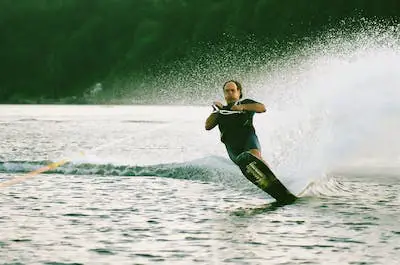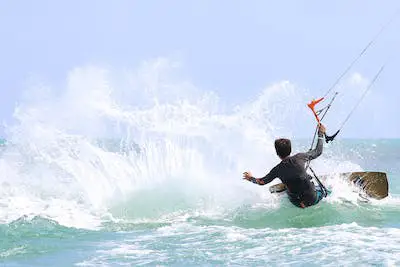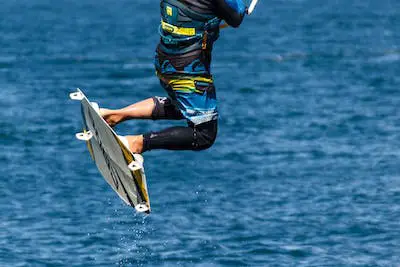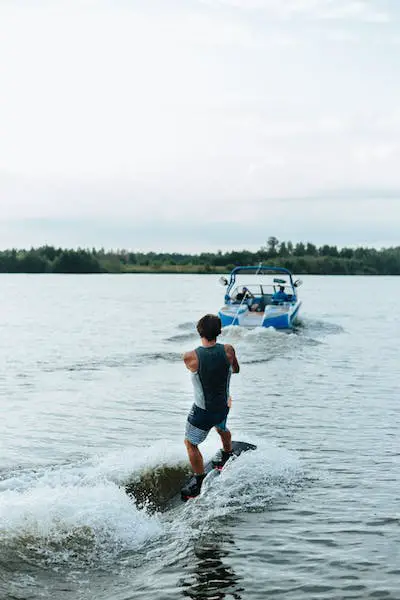Bodyboarding is a fun water sport that is enjoyed by individuals of all ages and abilities. It has become a popular activity at beaches all around the world and is a great way to stay active, boost fitness levels, and enjoy the beauty of the ocean. In this article, we will take a closer look at the benefits of bodyboarding and its positive impact on health and wellness.
What is bodyboarding?
Bodyboarding is a water sport that involves riding a small board, typically made of foam or a combination of foam and fiberglass, on the face of a breaking wave. It is similar to surfing, but the rider lies on their stomach on the board instead of standing up. Bodyboarding can be done in all kinds of conditions, from small surf to massive waves, making it a versatile sport suitable for everyone.
Is bodyboarding a good exercise?
Bodyboarding is an excellent form of exercise, as it requires a lot of physical exertion. It is a high-intensity, low-impact workout that provides a full-body workout and helps to improve cardiovascular fitness. Paddling out to the waves, catching and riding the waves, and performing maneuvers requires strength, balance, and agility, which all contribute to improving overall fitness levels.
What are the physical and mental benefits of bodyboarding?
Bodyboarding, also known as boogie boarding, is a water sport that involves riding waves on a small, rectangular board. It offers a range of physical and mental benefits. Here are some of them:
Physical Benefits:
- Cardiovascular Fitness: Bodyboarding is an excellent cardiovascular workout as it involves paddling against waves, which increases your heart rate and improves overall cardiovascular health.
- Muscle Strengthening: Paddling and riding waves engage various muscle groups, including the shoulders, arms, core, and legs. This activity helps to strengthen and tone these muscles.
- Balance and Coordination: Bodyboarding requires good balance and coordination to navigate the waves and maintain control of the board. Regular bodyboarding can enhance these skills and improve overall body awareness.
- Flexibility: The constant movement and twisting motions involved in bodyboarding promote flexibility in the muscles and joints, enhancing your range of motion.
- Endurance and Stamina: Spending extended periods in the water and paddling against waves can build endurance and stamina over time, improving your ability to withstand physical exertion.
Mental Benefits:
- Stress Relief: Being in the water and engaging in a physically active sport like bodyboarding can help reduce stress levels and provide a sense of relaxation. The rhythmic motion of the waves and the immersion in nature contribute to a calming effect.
- Mindfulness and Focus: Bodyboarding requires concentration and focus to anticipate and ride the waves effectively. This level of engagement can help improve mindfulness and the ability to stay present in the moment.
- Connection with Nature: Bodyboarding takes place in the ocean, allowing you to connect with the natural environment. The sound of the waves, the feel of the water, and the beauty of the surroundings can have a positive impact on mental well-being.
- Boosts Confidence: Mastering the skills of bodyboarding, conquering challenging waves, and improving overall performance can boost self-confidence and self-esteem.
- Social Interaction: Bodyboarding is often enjoyed with friends or in a community of fellow enthusiasts. It provides opportunities for social interaction, camaraderie, and a sense of belonging.
Is bodyboarding safe?
Bodyboarding is a relatively safe activity, provided that the necessary safety precautions are taken. It is important to use the proper equipment, including a well-fitted wetsuit, fins, and a leash. Additionally, it is important to follow the rules of the beach and to be aware of the conditions, including water currents and potential hazards such as rocks and reefs.
How can bodyboarding be adapted for different skill levels?
Bodyboarding can be adapted to suit different skill levels, from beginners to advanced riders. For beginners, it is recommended to start in small surf and to take lessons from a qualified instructor to learn the basics, including how to paddle, catch waves, and perform basic maneuvers. More advanced riders can challenge themselves by riding bigger waves, performing more complex maneuvers, and participating in competitions.
Can bodyboarding be enjoyed by people of all ages?
Bodyboarding is a sport that can be enjoyed by people of all ages, from young children to seniors. Children can start bodyboarding at a young age, with the use of a boogie board or small foam board. Many elderly people also enjoy bodyboarding, as it provides a low-impact option for staying active and enjoying the ocean. It is important to take the necessary safety precautions and to choose a suitable beach for all ages and skill levels.
Conclusion
In conclusion, bodyboarding is a fun, versatile sport that offers a range of physical and mental benefits. It is an excellent way to stay active and healthy, and it can be adapted to suit different skill levels and ages. By following the proper safety precautions and choosing a suitable beach, individuals of all ages can enjoy the beauty and excitement of bodyboarding.






